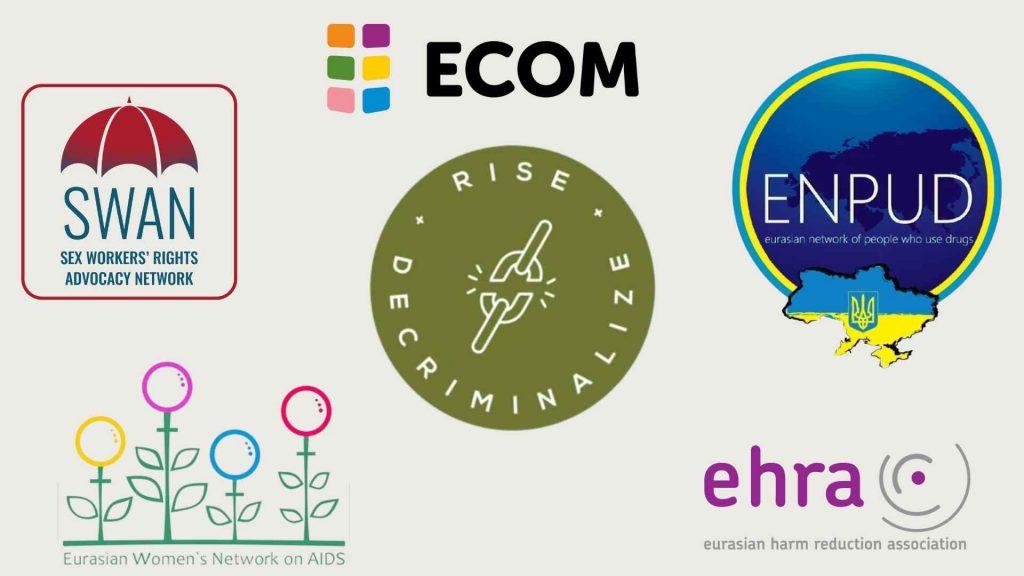Secure the Future: Civil Society and Human Rights Imperative for Public Health and HIV Response
in Central and Eastern Europe and Central Asia
A Communique Initiated by the Rise & Decriminalize Movement of Community-led Networks in CEECA
SUPPORT the Communique!
On behalf of a person or the organization
In recent years, governments in Central Eastern Europe and Central Asia (CEECA) have increasingly adopted laws and practices that restrict civic space, placing additional burdens on already criminalized populations such as LGBTQI+ individuals, people living with HIV, drug users, and sex workers. The war in Ukraine has exacerbated negative human rights trends, leading to increased insecurity, disrupted access to treatment and essential services, and heightened vulnerabilities to HIV across the region. The intersection of geopolitical turmoil, rising authoritarianism, shrinking civil society spaces, and limited donor approaches to HIV has created a critical need for robust, pragmatic solutions addressing the interconnected issues of HIV, public health, gender equality, and human rights.
The purpose of the Communique is to acknowledge and coordinate efforts among communities, civil society, politicians, experts and professionals, and other national and international stakeholders to address the shrinking space for civil society and communities to act in the spheres related to public health (including HIV), sustainability and security in the CEECA region.
Recognizing that:
✓ Community and community-led organizations are key in addressing issues of public health, including HIV, sustainability and security responses; and that
✓ Civil society and community groups play an essential role in pushing for evidence-based and human rights-based policies and practices, and can mobilize to provide services when state services fall short of it or alienate stigmatized, discriminated-against and criminalized people.
We urge the international community, development agencies, donor governments and private donors to:
1. Acknowledge the issue of shrinking space for the civil society in the CEECA region as a key challenge in public health and social care interventions and the need for action to safeguard civic spaces.
2. Ensure sustainability of low threshold, comprehensive community-led responses through flexible funding in order to adequately respond to current complex and intertwined issues in the CEECA region. In reaction to the new reality of repressions against particular communities and civil society at large (e.g. laws against so-called “gay propaganda”, “drug propaganda”, “foreign agents”, “undesirable organizations”), special attention should be paid to ensuring the safety and security of civil society and community workers and activists.
3. Acknowledging that HIV or any other disease response does not occur in a vacuum and is exacerbated by other interrelated issues, ensure that advocacy and funding approaches are focused on inclusion of a broad range of stakeholders for a coordinated, intersectional and holistic response.
4. Support communities in addressing issues of criminalization – communities of people living with HIV, people using drugs, LGBTQI+, and sex workers face discrimination and criminalization of different aspects of their lives in CEECA countries.
5. Take leadership and coordinate efforts among the international community, development agencies, donor governments and private philanthropies to ensure meaningful dialogue in CEECA countries around the importance of sustainability of services, community leadership in all areas concerning their lives and livelihoods, decriminalization as a pivotal aspect of human rights and ensuring space for civil society.
Download the Communiqe here
